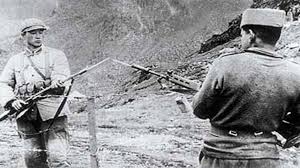The India-China war of 1962 was a significant military defeat for India, and although Jawaharlal Nehru’s policies and decisions played a role, he cannot be held solely responsible for the loss. Various factors – strategic, military and geopolitical – contributed to the outcome.
- The main reasons for India’s defeat in 1962:
- Nehru’s misrepresentation of China’s intentions, Nehru trusted “Hindi-Chini bhai bhai” (India-China) and believed in peaceful co-existence, ignoring early warnings.
- The head of the IB, B.N. To reduce China’s influence in the Himalayas.
- Its forward policy (establishing advanced positions in disputed areas) provoked China without adequate military support.
- Military weakness and poor preparation
The Indian Army was ill-equipped for high-altitude warfare. - Nehru and Defence Minister V.K. Krishna Menon underestimated China’s military power.
- Poor logistics – lack of roads, winter equipment and air support made it impossible to maintain the troops.
A failure of intelligence
India was based on diplomatic optimism rather than solid intelligence.
General B.M. Kaul (Nehru’s favourite, without experience in war) got a major command, which led to tactical errors.
Geopolitical isolation
The U.S. and USSR were occupied with the missile crisis in Cuba (October 1962) and offered little support.
India’s policy of non-alignment left it without strong allies during the war.
Was Nehru solely responsible for this?
By No. Although his excessive belief in diplomacy and military negligence were important factors, the defeat was also due to:
Bureaucratic failures (delays in modernisation), There is lack of infrastructure in the North East.
China’s sudden attack with better forces.
Nehru’s health and political influence
The war deeply affected Nehru, both politically and personally. Many believe that the humiliation contributed to the deterioration of his health before his death in 1964.

